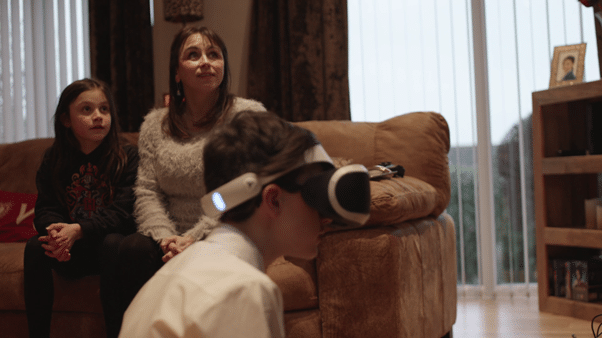
 " alt="">
" alt="">

Reviewed by
Peter Rigby - Director of Medical Negligence | Last updated on: 7th September, 2023
We've got your Skin Cancer Claim covered
- No win No fee
- Not just lawyers - real specialists
- No obligation
- UK's highest-rated medical negligence solicitors
Skin cancer affects over 16,000 a year in the UK, yet has a high survival rate when caught in the earliest stage. Without an early diagnosis or correct treatment, skin cancer can progress and the outcome be much worse. If you’ve experienced an incorrect or late diagnosis, or received substandard care that has worsened your condition, we want to help you get your life back on track and receive the compensation you’re entitled to
Making a skin cancer compensation claim
Making a claim for medical negligence can seem overwhelming, especially when you’re already dealing with cancer. However, our medical negligence experts will manage the claim for you and handle your case with care and compassion from the very first call to the final settlement. An initial consultation will help us to determine if you have a case and from there we will:
- Tell you how much you may be entitled to
- Assign an expert lawyer to guide you through the entire process
- Investigate thoroughly to make sure we get the maximum compensation
- Take your skin cancer claim on a No Win No Fee basis so you don’t pay a penny up front
Find out if you
have a claim
Take the 10-second claim test
Free Advice
03300 080 352
claim form
We're the highest-rated No Win No Fee medical negligence solicitors on Trustpilot
What is a skin cancer compensation claim?
All medical professionals have a duty of care when diagnosing and treating patients. Any failure to provide adequate care is a breach of this duty and could be considered medical negligence. If there was a delay in the diagnosis or treatment of your skin cancer, and your skin cancer got worse because of this delay then this could be a case of medical negligence and you may be entitled to make a skin cancer compensation claim. You can make a claim for medical negligence no matter when it happened, from early appointments through to treatment. We have helped patients just like you claim for medical negligence at any time during their skin cancer diagnosis.
- Initial appointments – if a GP has not sent your for tests or ignored your concerns
- Referrals – any avoidable delays in referring you to a specialist or the correct test not being carried out at your referral appointment
- Diagnosis – you may have been misdiagnosed with a different illness or had your skin cancer staged incorrectly
- Treatment – this could include being prescribed the wrong course of treatment or one that was not aggressive enough, or too invasive for your particular cancer.
The impact of a skin cancer misdiagnosis can not only affect the outcome of your condition, but have a devastating effect on you and your loved ones. Which is why we are here to help you make a claim.
Types of skin cancer claims
There are three main types of skin cancer and a misdiagnosis, or medical negligence, can happen no matter what type of skin cancer you have.
- Basal cell carcinoma – usually shows as a bump on the skin which can look different in every patient.
- Squamous cell carcinoma – about 20 out of every 100 skin cancers is a squamous cell carcinoma and they usually show up in areas exposed to the sun.
- Melanoma – anecdotally the skin cancer we hear about most and the 5th most common cancer in the UK
Although each skin cancer may present with different signs and symptoms, all concerns should be properly investigated. If your GP suspects skin cancer, they will need to decide whether to refer you to a specialist and in some cases, an urgent referral might be required. In England, if an urgent suspected cancer referral is made, you should see a specialist within 2 weeks.
Signs and symptoms of skin cancer
Survival rates for stage 1 skin cancer are, on average, 93% compared to 53% when diagnosed at stage 4. This is why early detection, diagnosis and treatment is vital. If the signs are missed, or you were not sent for the correct tests after an initial appointment, your skin cancer could have become more advanced. Signs and symptoms include:
- A new mark on your skin that doesn’t go away, is unusual in shape or does not stop growing
- A spot that is oozing or bleeding, or is scabby and doesn’t heal
- A mark or cut that bleeds without being touched
- Red or swollen moles
- Misshapen moles
- Itchiness or pain on your skin that doesn’t go away
The only way to fully determine if you have skin cancer is with a biopsy. If you had any of these signs or symptoms and were not referred for a biopsy, you may have a claim for skin cancer compensation.
How do I know if I can claim?
It can be hard to understand if you are able to make a skin cancer compensation claim. In order to do so, it must be proven that any medical negligence had a direct impact on your skin cancer, either by making it worse or delaying treatment. We have helped thousands of clients claim compensation for skin cancer negligence. Examples of the most common claims are:
- Missed symptoms or failure to recognise skin cancer symptoms, leading to a delayed diagnosis or misdiagnosis.
- Failure to make a fast and appropriate referral to a specialist
- Avoidable complications during treatment and care
- A negligent error in the diagnosing and staging of cancer
- Misinterpreted test results
- Misdiagnosis, where patients are diagnosed with the wrong type of cancer or do not have cancer
If you have experienced the damaging consequences of a skin cancer misdiagnosis, or any other kind of negligent care, we can explain if you have a claim and take you through your case step by step.
What can I expect?
Skin cancer is a very serious condition and treatment and recovery can be invasive. If your skin cancer could have been treated earlier and you have suffered avoidable consequences, compensation can help you to:
- Recoup any loss of earnings from time taken off work
- Pay for unexpected costs, like travel to and from appointments
- Access private healthcare or rehabilitation services
- Fund therapy or counselling for the pain and distress you have suffered
- Any aids or prosthesis if skin cancer has led to loss of mobility or amputation
There are no set figures for a skin cancer compensation settlement as every case will vary. Instructing a medical negligence lawyer to handle your case will ensure you get the maximum amount of compensation to help you recover or access support as quickly as possible.
Why Choose Us?
With a team of over 100 lawyers and 30 years experience in medical negligence, we can be trusted to handle your skin cancer claim. We have helped thousands of clients just like you all over the UK. Our experience includes not just NHS trusts but private clinics and institutions too. Many solicitors will cover a range of accident and injury claims; at Patient Claim Line we only take on medical negligence cases so that we can be the best at what we do, and help every person who has experienced misdiagnosis or malpractice, to get the compensation they deserve.
No Win No Fee Skin Cancer Claims
Every case we take on is on a no win no fee basis no matter what the circumstances. Not only do you have complete peace of mind knowing that you needn’t pay a penny upfront, but you also won’t pay anything if we do not win your case. Any fees you do eventually pay will be explained at the beginning of your claim to make sure you are happy. We may also apply for interim payments as part of your compensation claim, to help you with costs or financial stress arising from your skin cancer diagnosis.
Skin Cancer Support
If you or a loved one is suffering with a recent skin cancer diagnosis, it is important to seek support and make sure that you don’t have to suffer alone. A good starting point would be to access resources from Cancer Research UK Skin Cancer Support or Macmillan Skin Cancer Support and Information . For local support, you can use the NHS Cancer Support Services.
Why Choose Patient Claim Line for your Skin Cancer Claim?
Not just lawyers — medical negligence experts
Patient Claim Line was established in 2014 and consists of a team of medical lawyers specialising in cancer negligence and general medical negligence claims.
At Patient Claim Line we have more than 100 solicitors with a combined experience of over 400 years and they will work on your behalf to achieve the best result possible for you.
It’s not enough to use a solicitor who sometimes covers medical negligence. You need someone who knows this area through and through. That is what the solicitors here at Patient Claim Line do. They deal exclusively in this area of law and are experts in the field.
Frequently asked questions about Skin Cancer Claims
Our expert legal team answer your questions about making a Skin Cancer Claim
Proving medical negligence comes down to cause and effect. It will need to be shown that when you experienced medical negligence, what happened to you afterwards was directly caused by this event. For example, if you received a delayed diagnosis some time after first complaining of symptoms, and this delay meant your cancer went from stage one to stage two, you could most likely make a claim. A specialist medical negligence solicitor would be able to access your medical records to demonstrate that what happened to you had a direct effect on your prognosis or treatment.
If you have found out that your skin cancer is terminal, you may be able to make a terminal illness misdiagnosis claim. Skin cancer can be aggressive and, in some cases, can spread in as little as six weeks. Even if your cancer is not terminal but your quality of life has been massively impacted and you have had to have much more invasive procedures to treat the cancer, you could still make a medical misdiagnosis claim.
Skin cancer can be misdiagnosed as less serious skin conditions like psoriasis or rosacea. Moles may be considered benign and believed to not pose a threat, whereas skin lesions can be mistaken for scabs or scars. There have even been instances where a mole was thought to be a type of fungus and not cancer. Skin cancer is more prevalent in people aged over 65, and so there are cases where it is misdiagnosed simply because the patient is not considered old enough to have skin cancer. It is also more common to get skin cancer in places that are exposed to the sun, so if it develops in a protected area, it could be dismissed as something else.
The NHS is an invaluable resource and we are very lucky to be able to access free healthcare. However, this does not mean that the healthcare we do receive should be below standard. We trust in medical professionals to help us get better. If there is a failure in diagnosis, treatment or care, it can have a detrimental impact on an individual’s life. When a claim is made against the NHS, there must be a full investigation into the circumstances of that claim. This leads to improved services for the next patient and more vigilance from anyone involved. It can also highlight serious misconduct which could be potentially life saving. Complaints to the NHS are often ignored or take a very long time. Instructing medical negligence lawyers can be the only way to get yourself heard and access help for your recovery.
If a loved one has suffered or has unfortunately passed away due to medical negligence in relation to skin cancer, you do have the right to make a claim on their behalf. Parents and legal guardians are able to make claims on behalf of children under the age of 18.
Meet our Skin Cancer Team
Case Study
Sarah's Story
"Now we have peace of mind"
My husband, Nick, went back and forth to the doctors for a long time and tried everything the doctor recommended. But his illness got worse, to the point that he was in agony.
In the end we got so desperate that we asked for a referral. The doctor was reluctant, so we had to consult a private hospital. That’s when we found out there was a tumour. It took years from the onset of his illness to finally start cancer treatment.


He used to be a man with a lot to live for, but in the end he was in so much pain that he withdrew from the family. He became angry that nobody had helped him sooner, and the legal team were able to give him the validation that he was desperately seeking. The NHS confirmed if they had done more, Nick would still be alive today.






